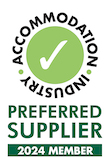Communal Hand-Wash Station: Setup Guide
With COVID-19 spreading across the world, the ripple effect on businesses in the food and hospitality industries has been severe, primarily due to the abrupt shortage of demand and labour. However, there are many ways of reducing the spread of viruses and germs in your food business.
One of the most effective and leading means of thwarting the Coronavirus is hand washing. Hand washing also averts the spread of other viral infections like cold, flu, and so on. What’s more, it thwarts the spread of highly infectious diseases such as Severe Acute Respiratory Syndrome (SARS) and Middle East Respiratory Syndrome (MERS).
Are you running a hotel, caravan park or fast food venture? It might be wise to set up a communal hand-wash station for your clients. It shows that you have their interests at heart and improves the safety of your employees as well.
This post will explain everything you need to know about installing a hand-wash station in your workspace.
Factors to Be Aware of When Designing a Hand-wash Station for Your Facility
Not all soaps are friendly to everyone’s skin. Determine the skin reactions and dermal tolerance of all hand-washing products through self-assessment or professional clinical evaluation. Ensure they meet legal obligations and do not have any side effects.
Keep in mind that even alcohol used in sanitizers may cause skin irritation when compared with water and soap. Ensure your hand wash has mild or no fragrance since strong fragrance may cause respiratory symptoms or discomfort in some individuals. The Centre for Disease Control and Prevention advises the use of water and soap for cleaning your hands.
You should also consider the location of the hand-washing unit. It should be easily accessible by both clients and employees. Depending on the size and layout of your facility, choose the ideal type of hand-washing sink.
There are single, double and triple bowl sinks available. In the case of large establishments, you can set up more than one sink inside or outside the structure. For mobile food facilities, you may choose a portable sink so you can use it anywhere.
Ensure your station is stocked with enough soap and paper towels.
The Importance of Having a Dedicated Hand-Washing Sink
It is crucial to put up the ideal type of sink in your facility. Assess the size and traffic of your facility and decide whether you need a double, single or triple bowl sink.
You also have the option of a portable sink. They are efficient and provide high mobility.
According to the US Food and Drug Administration (FDA), a food business should at least offer a hand-sink outside or inside the establishment. Complying with these FDA regulations not only avoids legal action, but it prevents the spread of diseases around your caravan park or restaurant.
Your sink should be well-supplied with water, soap, sanitizer and paper towels. This will encourage hand hygiene and prevent food poisoning that causes illness or even death.
A hand-washing sink will also help you score a good Food Hygiene Rating and shows customers that you value their well-being.
Location of the Hand-Wash Sink
 Photo by Kenzie Kraft on Unsplash
Photo by Kenzie Kraft on Unsplash
Ensure your sink’s location is accessible to motivate customers and employees to wash their hands.
Provide separate sinks for your different food preparation sections such as meat preparation, fresh produce and bakery.
Provide hand-washing sinks in open-air areas of your caravan park, such as the playground.
 Image Source: Torquay Holiday Park
Image Source: Torquay Holiday Park
Temperature of the Water
 Photo by: Edward Jenner from Pexels
Photo by: Edward Jenner from Pexels
Although the FDA recommends using water at 100°F, studies show that the temperature of the water has zero effect on minimizing microbes under primary hand-washing conditions.
According to Dr Raymond Pontzer, UPMC infection and prevention director in Pittsburgh, as long as you follow the correct hand-washing procedure, the water temperature doesn’t make much of a difference.
There’s also the important factor of increased energy costs brought about by heating water
The water temperature does not kill bacteria or viruses. Using the proper hand-washing and scrubbing procedure is what protects against the spread of illness.
Why You Should Avoid Jet Air Dryers
It might be prudent to stay away from jet air dryers in your establishment. Studies done by University of Leeds scientists indicate that electric air dryers spread multiple types of viruses and bacteria, therefore making your customers and workers susceptible to others’ germs.
These microbes move around in the air for 15 minutes before settling on surfaces. Most people fail to wash their hands properly, and this makes the air dryer act as an aerosol that infects the entire room.
Depending on the location of the electric dryer, it may contaminate the sink, floors as well as other places. Opt for paper towels when drying your hands since wet hands promote bacterial and viral transmission. The friction that occurs when using paper towels will also dislodge the bacteria or virus.
Reports from the Harvard Medical school show that bacterial microbes in the air can spread as much as six square meters.
Experts suggest that the viruses and bacteria are sucked up by electric dryers and remain in the devices’ nozzles waiting to spread when you switch on the dryer.
Consider opting to provide paper towels as the sole drying method for your hand-wash station.
Help Prevent the Spread of Disease
Using water and soap is a highly effective option for cleaning your hands. Use an alcohol-based sanitizer after washing to kill any germs that may remain.
The water temperature does not affect the cleanliness of hand washing. Hot water will get rid of the oil faster but extremely hot water will burn the skin and the ensuing wounds may provide a breeding ground for germs.
It is crucial to dry your hands to avert viral and bacterial infection. Opt for disposable paper towels to dry your hands rather than jet air dryers or reusable towels. This dramatically lowers the risk of cross-contamination.
Source: WikiMedia


 Photo by:
Photo by:  Photo by:
Photo by:  Image by:
Image by: 












